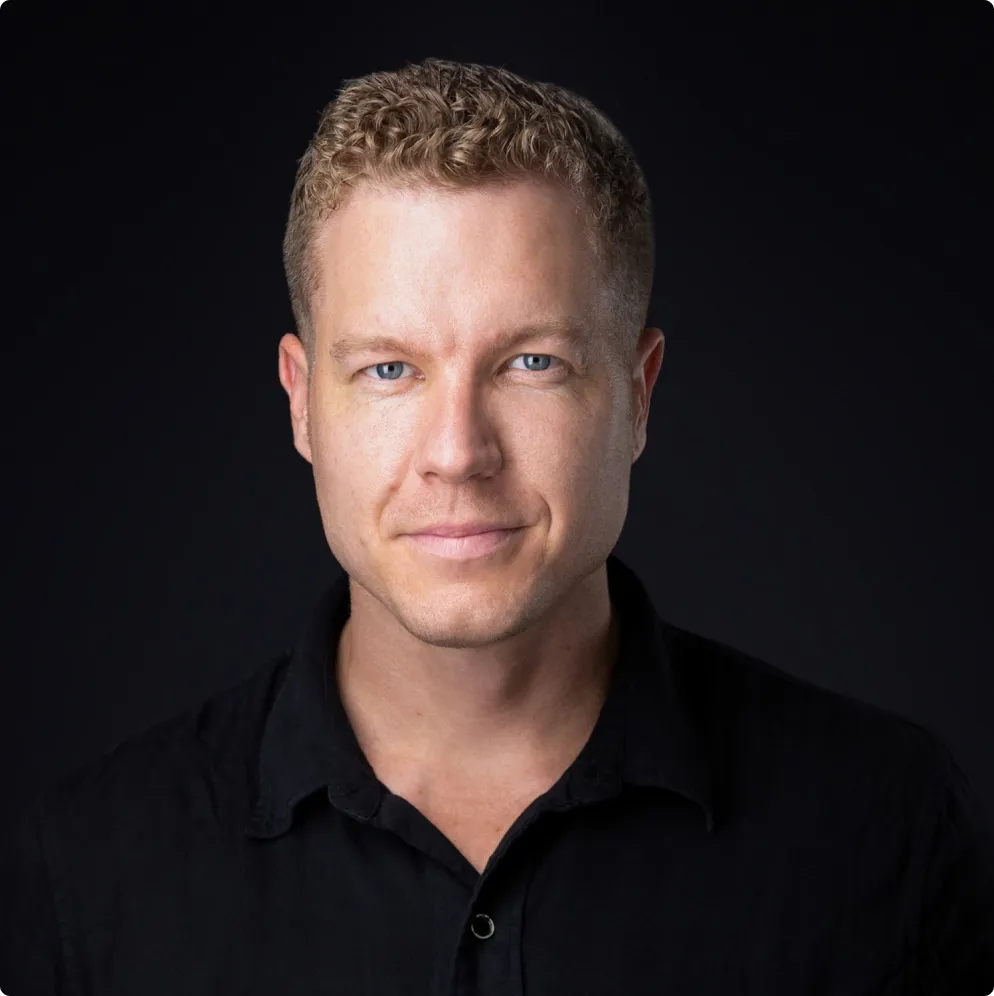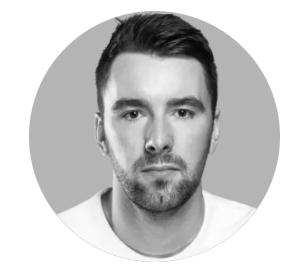Become a product idea machine.
There are wonderful and scalable product ideas everywhere. But spotting them can be a challenge. Join our intensive bootcamp to learn how to spot startup ideas that have a high chance to be huge.
I’ve started a lot of businesses, but there was one that hit big and completely changed my life.
It’s called The Hustle, and it’s a simple newsletter read by nearly 3 million people a day.
After only 4 years I sold The Hustle last year for tens of millions of dollars, changing my family’s life. The year we sold we likely would have done $20 million in revenue.
That business worked out well. However, like most entrepreneurs, I started with no idea what I was doing. Or how I was going to do it.
I was 24. I didn’t know anyone in the media industry.
But I was scrappy. Resourceful. A hustler.
So, to improve my chances of success, I created a systematic research approach that allowed me to spot the opportunity. And it was a big one.
First, I backed into my 5 year goal (to make $20 million by the age of 30), identified my skill set (writing), and went into deep research mode on an industry, business model, and opportunity that fit my skillset.
And so, after only a month of research and hundreds of hours of digging, I decided to launch a newsletter. I figured out how the business model worked, how to enter the market and what mistakes my competitors made (and where they succeeded).
Without a doubt, luck was involved in my success. But that early research I did early on, it played a huge role in my success.
Over the years I’ve refined the process. I’ve launched a few other companies because of it. And tons of other people launched businesses based on these insights and my research process, creating billions in value.
I never wanted to do a course on this stuff because, well, I just didn’t want to.
But, a few folks ask me to do it, and so, well, here it is.
The Ideation Bootcamp is where I show you my systematic way for researching different business ideas that can scale to at least $100m in revenue. The goal? Increase the odds of success.
The backbone of the Ideation Bootcamp is to reverse engineer other companies.
Why?
Because it’s important to see how the successful startups work, make money, and grow.
In doing that reverse engineering process, you spot new opportunities and discover interesting startup ideas that have a higher chance of succeeding.
We’re talking things like:
- Spotting patterns in user behavior
- Predicting a private company’s revenue
- Using free tools to guess a startup’s website traffic and user count
- Spying on their paid marketing
- And more
So, whether you’re a startup founder starting with nothing. Or an employee launching a new product within your company. Or you're in the thick of it and running your own company already...
If you want to increase your chances that your new thing is something customers love and makes money... then try the Ideation Bootcamp.
Talk soon,
Sam Parr
Founder of The Hustle, Co-Host of the My First Million podcast...and a few other things.
I'm Sam Parr. I've founded a handful of startups. The most well known is a popular newsletter called The Hustle that's read by nearly 3 million people a day.
I grew it to 8-figures in revenue and sold it for tens of millions of dollars to HubSpot.
I also co-host My First Million, one of the most popular business podcasts in the world.
It's about, shockingly, reverse engineering cool businesses...:)
I'm not an expert. But I do have a unique perspective. Because of my podcast, The Hustle, and my conferences, I've been lucky enough to meet some of the most successful founders in the world.
And in meeting them, as well as researching for my podcast and, well, running my own company, I've compiled everything that I've learned about ideating businesses into The Ideation Bootcamp.

How we break it down
Course 1
Mindset
Picking the end goal
You can't go somewhere unless you know where you want to go. We need something to reverse engineer.
Let's figure out how to pick and structure your desired outcome.
We'll use a very systematic way to structure our goals and, more important, help you decide what you want (the hard part).
Course 2
Desk Research
Reverse engineering any company
This part will change your life.
You’ll learn how to take apart businesses.
This is incredibly valuable to you, a business builder or product creator.
When you know something's possible, and even more, how it works, it changes your attitude. Shows you what’s possible. And gives you new ideas.
We'll walk through different free tools that you can use to do this as well as lots of practical examples.
Course 3
Advertising
Deconstructing a company's advertising strategy
Studying a company’s advertisements can teach the following:
- Their messaging and positioning: Who are they attempting to appeal to? How do they describe themselves and why? What features and benefits are listed?
- The landing pages they use: What language converts customers? What’s the website flow to convert a user into a customer?
- Understand a company’s priorities: If Facebook is buying Super Bowl ads promoting Facebook Groups…then Facebook Groups must be a big priority.
- Learn what’s profitable and what’s not: If Casper consistently is buying ads in the New York Subway…then maybe its working. Let's find out.
Often, getting customers is the hardest part of a business.
So, it's a fair argument that you should only launch businesses where you can acquire new customers profitably. We'll learn how to do that, as well as getting insights to new opportunities by looking at a company's ads.
Course 4
Customer Patterns
Spotting what people want
Imagine being able to ask a high level employee at a competitor everything about their business.
Or seeing exactly what the customer's want (and don't want) from your potential offering.
That's what this lecture is about.
We'll research the strengths and weaknesses of a company based on what their employees and customers say, and what that means for your product and how to use that information.
Course 5
Riskiest Hypothesis
Every business has risks. Let's identify and test them.
All startups have assumptions and risks. Identify your riskiest assumption and test whether it’s correct and/or whether you can solve it.
The Riskiest Assumption Test can determine whether consumers have an interest in the product before developing anything and if the business you’re researching is right for you.
Often, the riskiest hypothesis falls into three categories. We'll go over each.
Let's do thisFAQ
How does the course work?
Do I have to already have a product or business? Do I have to be a founder?
What's the refund or cancellation policy?
How much does it cost?
What they're saying

Shaan Puri
Entrepreneur
“Sam deconstructs businesses unlike anything I’ve ever seen. Plus he’s great at explaining things in a simple way. Machine!”

Codie Sanchez
Entrepreneur
“One of the biggest errors one can make is taking advice from the wrong person. Sam’s one of the few people I listen to when it comes to business strategy.”

Jack Smith
Founder of Vungle
“If I were starting a new business today, then the most valuable resources I could think of for coming up with a new business idea would be Trends.co and the My First Million podcast - both created by Sam.”

Jason Yanowitz
Founder of Blockworks
“We’ve spent a bunch of dinners brainstorming different business stuff. I ended up using a bunch of the frameworks, which helped us bootstrap to nearly $20m in revenue.”

Sahil Bloom
Entrepreneur
“Sam's one of my go-to brainstorming friends. He has an exceptional knack for working through the idea generation process and developing a plan of attack for execution.”

Jack Butcher
Entrepreneur
“Sam knows the most intricate details about the most obscure companies. I have no idea what his process is for researching, but he always finds things no one else does, and makes it all look obvious in hindsight.”

